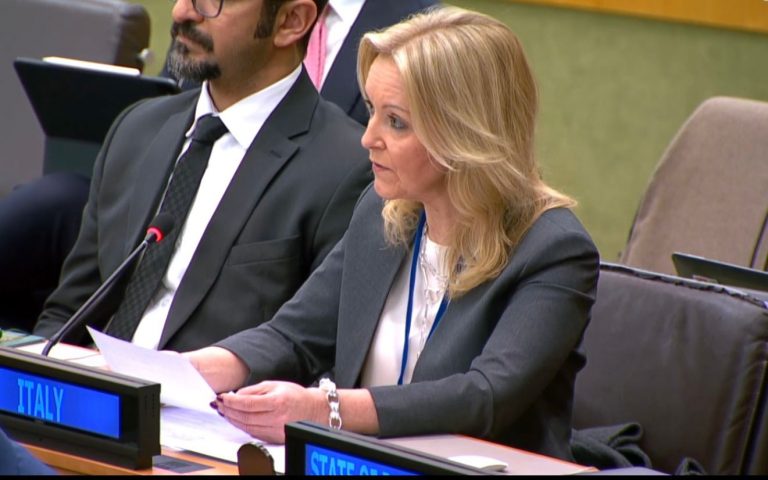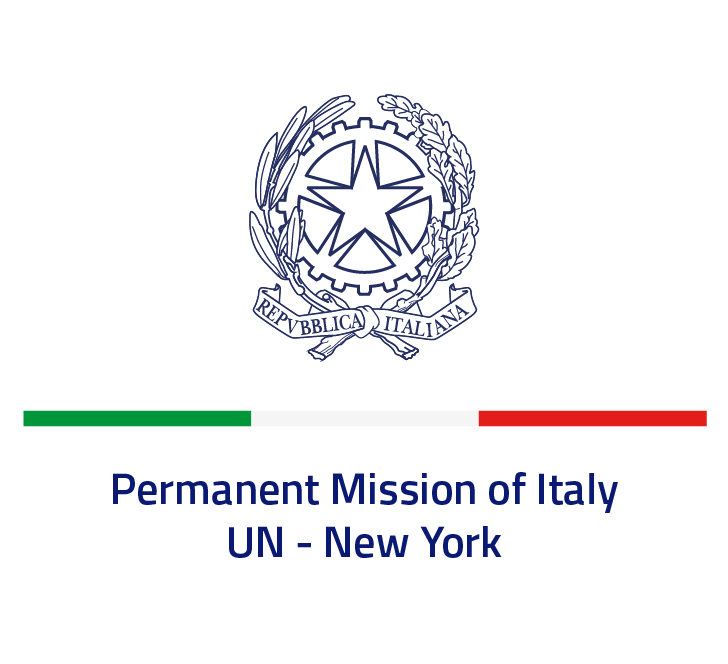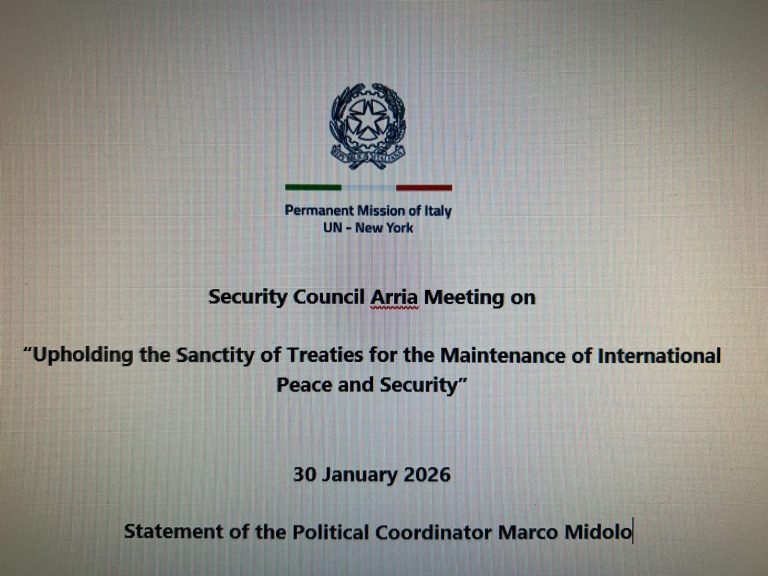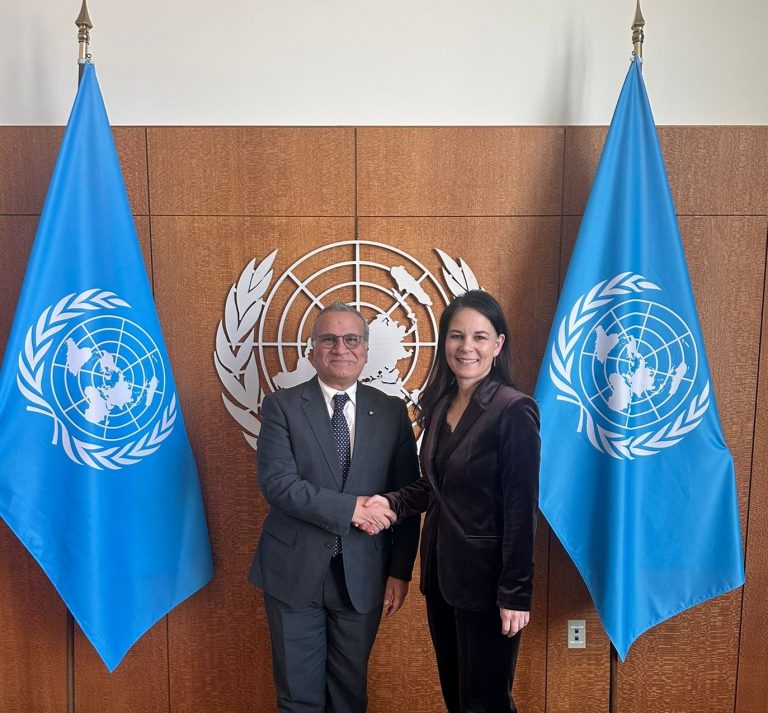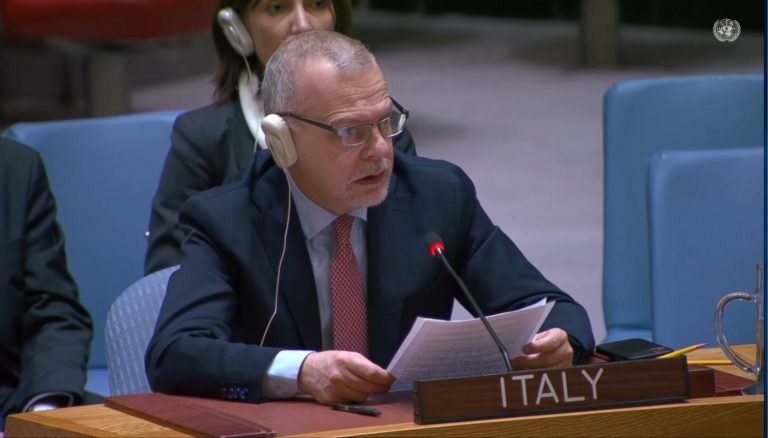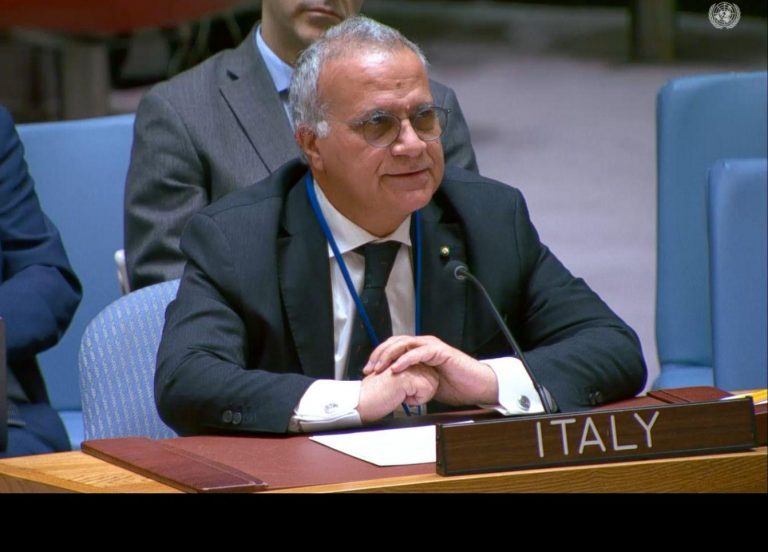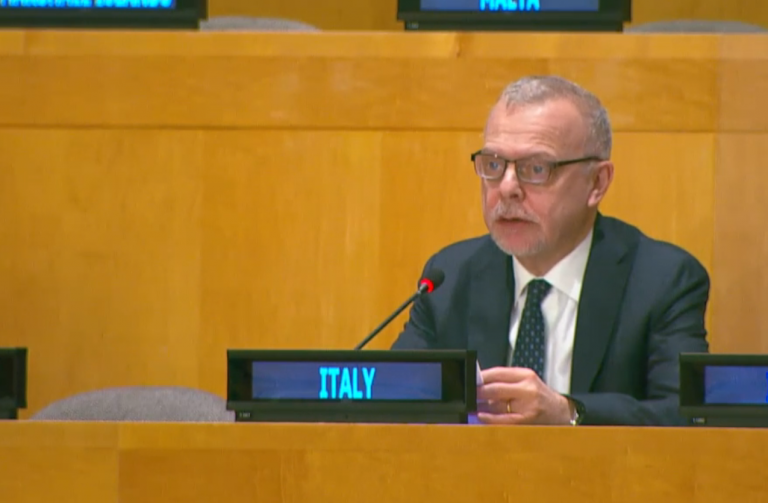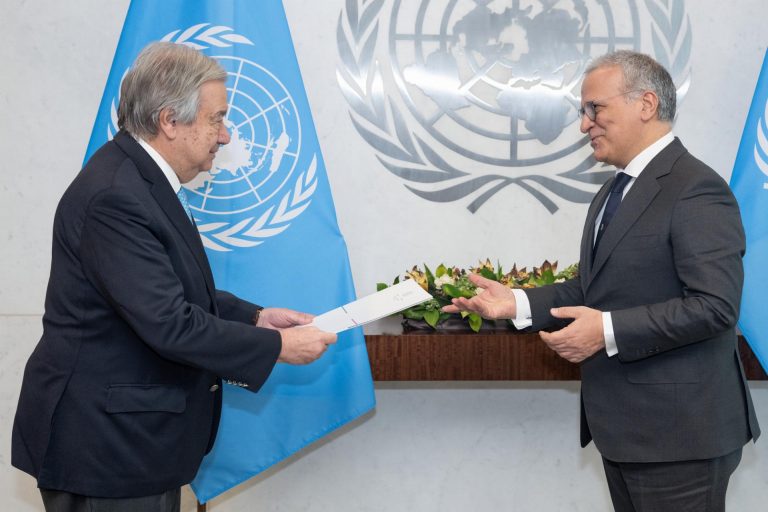ANSA – NEW YORK, 12 November
“The risk of proliferation is one of the main threats in an era dominated by uncertainty in terms of security.” Ambassador Maurizio Massari, Italy’s Permanent Representative to the United Nations, takes stock with ANSA at the end of the work of the First Committee of the UN General Assembly, the body tasked with addressing all issues related to disarmament, arms control, and international security, of which Italy was elected president by acclamation last June. “The Italian presidency has been recognized as an example of effective management of the proceedings, which allowed the session to end one day ahead of schedule,” Massari emphasized, reflecting on the discussions that had just concluded, which confirm, 80 years after the tragic bombings of Hiroshima and Nagasaki, the importance of continuing to support and relaunch the international disarmament architecture, starting with the Non-Proliferation Treaty.
The work, he explains, was “inevitably influenced by events at the international level. An initial easing of tensions between Russia and the US coinciding with the Alaska summit was followed by a resurgence of rhetoric between the two countries against the backdrop of the failure of the Budapest summit and the launch of the Russian Burevestnik missile, followed by the American announcement of the resumption of nuclear testing. The conflict between Israel and Iran remained high, while numerous interventions focused on the nuclear threat posed by North Korea. At the same time, he continued, the announcement of a truce in the Middle East had an impact on the progress of the negotiations, with Syria voting in favor of the Resolution on the Convention against Chemical Weapons for the first time.
The First Committee is traditionally the most politically relevant of the six committees of the General Assembly due to the nature of the issues discussed there, and Massari states that “dealing with such sensitive issues in an inclusive context with the participation of all States demonstrates the importance of multilateralism and the existence of a global platform such as the UN.” The issue of the application of artificial intelligence and new technologies in the military sphere was also addressed. “States are wondering how to balance the risks and dangers, which must certainly be avoided, with the opportunities associated with such innovative systems,” says the ambassador, also highlighting the launch of the new United Nations Permanent Global Mechanism aimed at guiding responsible behavior by states in cyberspace: “In an era in which cyber threats are growing in complexity, this mechanism represents a significant evolution in cyber diplomacy led by the United Nations.”
But faced with this scenario and the crisis that multilateralism seems to be experiencing at the global level, what is the UN’s capacity for action? “First and foremost, it is a purely intergovernmental organization, so it can only function politically if the member states, and especially the major powers that have veto power in the Security Council, want it to function. Secondly, there is the widespread perception that the organization lacks representativeness, starting (but not limited to) with the Security Council, whose current composition represents the world of 1945, not that of 2025. On this issue, as it is well known, Italy has a clear position and, together with the Uniting for Consensus group, supports a reform that would increase geographical representativeness by exclusively increasing the number of non-permanent members, without crystallizing new hierarchies that could soon become obsolete and, above all, without extending the power of veto. For Massari, however, “regardless of this aspect, the UN remains essential for international security.” (ANSA).








